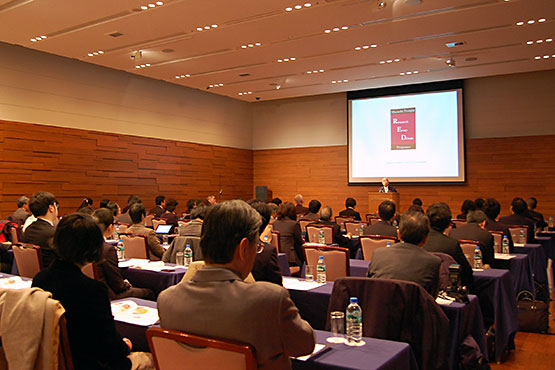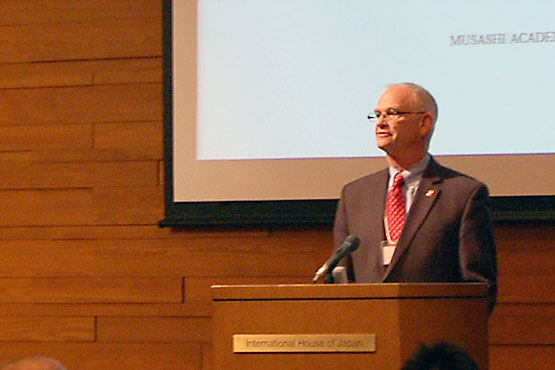
Musashi Temple RED (Research, Essay, Debate) Program courses for first and third year junior high school students will start in August 2014. Temple University, Japan Campus (TUJ) is developing curriculum for the programs together with Nezu Ikueikai Musashi Gakuen. Application details will be announced in March. Junior high and high school students in the Tokyo metropolitan area are welcome to apply.
The RED Programs are for those junior high and high school students who plan to study abroad or at a foreign university in Japan. Students will learn not only English but also critical thinking and communication skills. Participants will develop their skills by conducting research, writing essays, and debating – all while studying science in English.
Please see the RED Programs website for more details.
Comment from Bruce Stronach, Dean, Temple University, Japan Campus

The most important issues in education reform in Japan today are increasing English language competency, increasing the number of students who study abroad, increasing the ability of science and technology students to think critically and communicate effectively in order to be able to compete more effectively with their peers around the world, and collaboration with foreign institutions of higher education.
The RED Programs will successfully address every one of these issues. They are designed to produce in students all the abilities that are necessary for young people in Japan to succeed in moving forward Japanese global competitiveness in the sciences. Learning English and science is essential, but even more importantly they will learn how to communicate and interact confidently with their peers from around the world.
It is important to address these issues early in a student’s education. If we wait until they are in university, it is too late. Learning occurs best when the mind is young, and that not only applies to learning a foreign language, in this case English, it also creates a deep learning of such basic concepts as the need to interact confidently with the world outside Japan, the need to think about the social impact of what you learn and do as a scientist, and the logic of the scientific method.”
